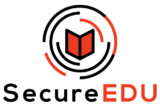Ensuring CIPA Compliance: A Guide for Schools
Child Internet Safety

Understand CIPA Requirements:
Familiarize yourself with the specific requirements of CIPA, which include implementing internet safety policies, employing technology protection measures (such as content filtering), and providing internet safety education. It is crucial to have a clear understanding of the obligations outlined by CIPA to effectively implement compliance measures.
Develop Comprehensive Internet Safety Policies:
Crafting well-defined internet safety policies is fundamental to CIPA compliance. These policies should outline acceptable use of technology, guidelines for online behavior, and consequences for policy violations. Make sure the policies are communicated to all students, staff, and parents to ensure everyone is aware of the expectations and responsibilities regarding online activities.
Implement Technology Protection Measures:
CIPA mandates the use of technology protection measures to prevent students from accessing harmful or inappropriate online content. Implement a reliable content filtering solution that blocks access to websites and materials that are deemed inappropriate or potentially harmful. Regularly review and update these measures to keep pace with emerging online threats.
Provide Child Internet Safety Education:
Education plays a critical role in promoting safe online practices among students. Develop a comprehensive internet safety curriculum that addresses various aspects, including responsible internet use, online privacy, cyberbullying, and digital citizenship. Incorporate age-appropriate content and engage students in discussions and activities that promote digital literacy and responsible behavior.
Review and Revise Policies Regularly:
Technology and online threats evolve rapidly, so it is essential to periodically review and revise your internet safety policies. Stay informed about emerging online risks and adjust your policies and practices accordingly. Regularly communicate any updates to staff, students, and parents to ensure ongoing awareness and adherence to the revised policies.
Establish Monitoring and Reporting Mechanisms:
Monitoring online activities is crucial for identifying potential risks and policy violations. Implement a system to monitor network traffic, internet usage, and student online behavior. Additionally, establish mechanisms for reporting incidents, concerns, or potential violations to appropriate staff members who can take necessary actions promptly.
Provide Ongoing Training for Staff, Students, and Parents:
To effectively enforce CIPA compliance, ensure that staff members receive regular training on internet safety, CIPA requirements, and related policies. Educate students and parents about the importance of safe online practices and provide resources and support to help them navigate the digital landscape.
By following these guidelines, schools can foster a secure online environment that protects students from inappropriate content and online threats while promoting responsible digital citizenship. CIPA compliance not only ensures eligibility for federal funding but, more importantly, contributes to the overall well-being and safety of students in the digital age.
